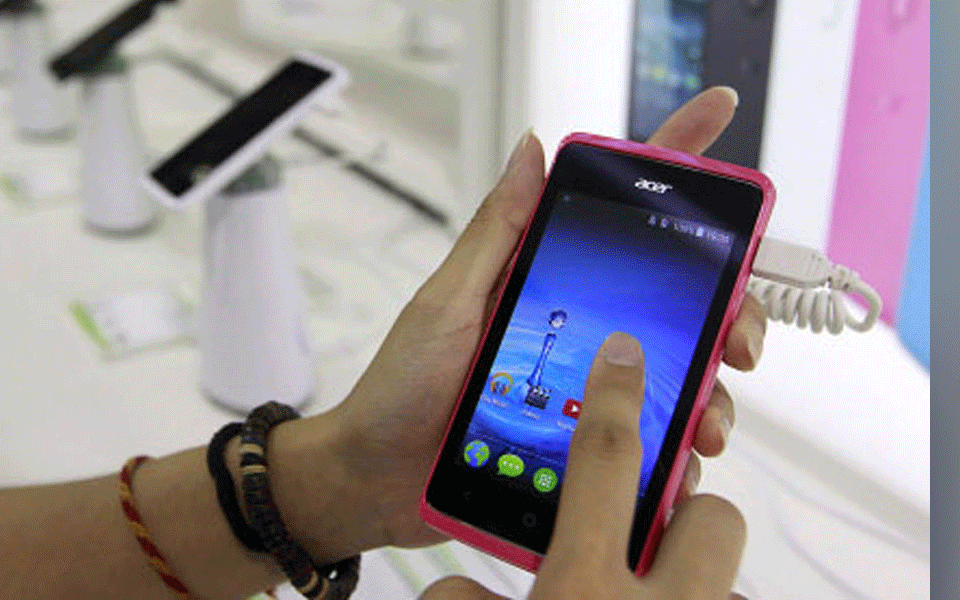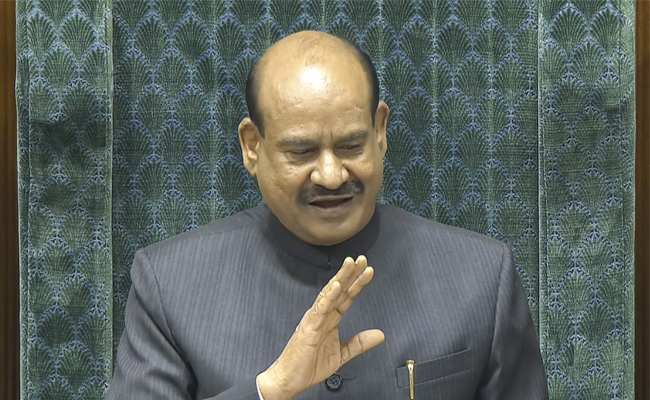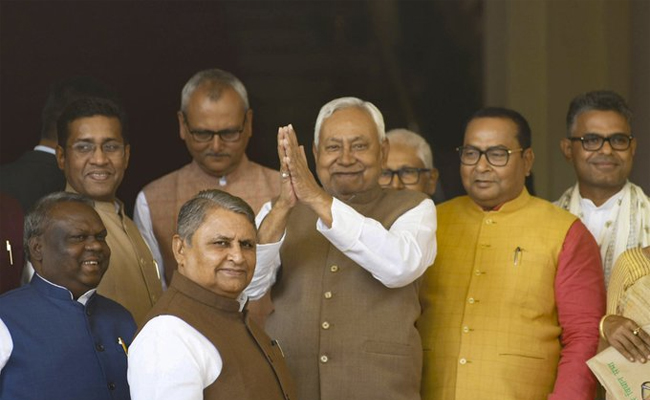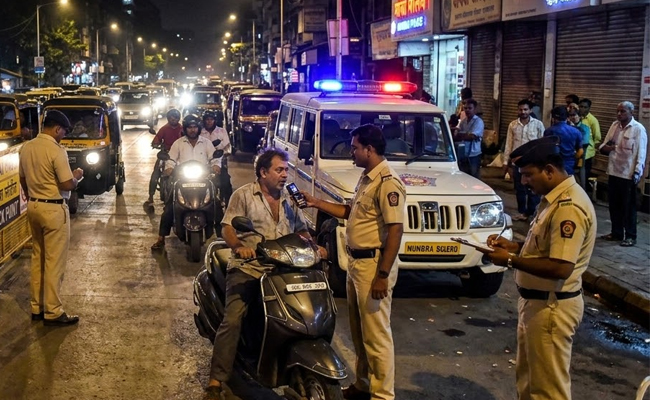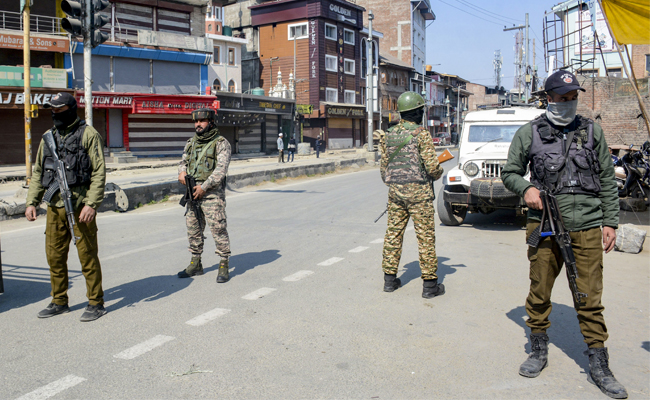New Delhi: About 56 per cent of children were found to have no access to smartphones which have emerged as essential tools for online learning during the coronavirus-induced lockdown, according to a new study that surveyed 42,831 students at various school levels.
The study 'Scenario amidst COVID 19 - Onground Situations and Possible Solutions' was conducted by child rights NGO Smile Foundation with an aim of analysing the access to technology.
The findings of the study showed that 43.99 per cent of surveyed children have access to smartphones and another 43.99 per cent of students have access to basic phones while 12.02 per cent do not have access to either smartphones or basic phones.
A total of 56.01 per cent children were found to have no access to smartphones, the study said.
"Concerning television, it was noted that while 68.99 per cent have access to TV, a major chunk of 31.01 per cent does not. Hence suggesting that using smartphone interventions for enhancing learning outcomes is not the only solution," it said.
At the primary level of education (class 1 to 5) 19,576 children were surveyed while at upper primary level (class 6 to 8) 12,277 children were surveyed. At secondary level of education (class 9 to 10) 5,537 children were surveyed and at higher secondary level (class 11 to 12) 3,216 children were surveyed.
The survey based on which the study was conducted used two approaches - over the telephone wherein the NGO reached out to the children whose database it already had -- students enrolled in various education centres of the NGO -- and second was through community mobilization wherein community workers went door to door to get answers.
The survey was conducted in 23 states, including Delhi, Gujarat, Maharashtra, Karnataka, Tamil Nadu, West Bengal, Andhra Pradesh, Telangana, Uttar Pradesh, Haryana, over a period of 12 days from April 16 to April 28.
The lockdown induced by the COVID-19 pandemic in March prompted schools and colleges to move to the virtual world for teaching and learning activities. However, many experts say the digital divide in the country may turn online classes into an operational nightmare.
As per official statistics, there are over 35 crore students in the country. However, it is not clear as to how many of them have access to digital devices and Internet.
Santanu Mishra, co-founder and executive trustee, Smile Foundation, said the findings clearly show that the digital divide is a real challenge, and multiple approaches need to be implemented to cater to all across the nation.
"As an exercise before we start any programme, we do a baseline study to understand the on-ground challenges so that our programmes can bring in real work and real change. With the onset of the pandemic, following indefinite school closures, it is more important than ever to understand the situation and how can we ensure that children are given quality education. Through this, we understand that customized modules need to be built in accordance with the channel of communication," he said.
Let the Truth be known. If you read VB and like VB, please be a VB Supporter and Help us deliver the Truth to one and all.
New Delhi (PTI): The Lok Sabha will witness a rare moment most likely on Monday next when Om Birla will not chair proceedings but will be seated amongst the members as the House takes up a notice seeking his removal from office.
As Parliament meets for the second phase of the Budget session on March 9, the Lok Sabha is likely to take up the resolution moved by the opposition against Birla's for allegedly acting in a "blatantly partisan" manner.
According to the rules and laid down procedure, Birla will get a right to defend himself when the resolution is discussed by the lower house. He will also have the right to vote against the resolution, Constitution expert P D T Achary explained.
The expert said while Birla will not chair the proceedings when the resolution comes up before the House, he will be seated in the prominent rows in the Treasury benches.
At least 118 opposition members had submitted a notice for moving the resolution to remove Birla from office for not allowing Leader of Opposition (LoP) Rahul Gandhi and other opposition leaders to speak in the House on the Motion of Thanks to the President's address, as well as for suspending eight MPs.
Congress member and chief whip K Suresh submitted the notice to the Lok Sabha secretariat on behalf of several opposition parties, including his party, Samajwadi Party and DMK.
TMC MPs, however, did not sign the notice.
ALSO READ: Curbs on movement, assembly remain in force in Kashmir after protests against Khamenei's killing
Achary, a former Lok Sabha secretary general, told PTI, that the "allocation of the seat, which the Speaker occupies under such circumstances is not mentioned in the Rules".
He said Birla will also not be able to vote on the resolution using the automated vote system, but will have to fill a slip to register his vote.
He presumes that a seat belonging to a Union minister, who is from the Rajya Sabha, could be given to him as only Lok Sabha members will be able to cast their votes for or against the resolution.
Deputy speaker of the Lok Sabha and deputy chairperson of the Rajya Sabha have their earmarked seats in their respective Houses when they are not presiding over.
Front seats in the opposition benches are allocated to them.
Article 96 of the Constitution bars a speaker or a deputy speaker from presiding over the House sitting while a resolution for his removal from office is under consideration.
The speaker has a constitutional right to defend himself in the House if the resolution is discussed in the Lok Sabha.
At least two Lok Sabha members have to sign the notice to move a resolution for the speaker's removal. Any number of members can sign the notice but a minimum of two is mandatory.
The speaker can be removed from office by a resolution passed by the House through a simple majority.
Article 94C of the Constitution has provisions for such a move.
"All the members of the House are counted to compute the majority, not the members present and voting, which is the normal practice. It means the effective membership of the House, except for the vacancies, is used to calculate the majority," Achary said.
The notice has to be submitted to the Lok Sabha secretary general, and not the deputy speaker or anyone else, he said.
The document is then examined at the preliminary stage to see whether it contains "very specific charges", he said.
"At the threshold itself, there is a process of admissibility. At that stage, it is seen whether it contains specific charges. Specific charges are required as only then the speaker will be able to respond," Achary explained.
The resolution must not contain defamatory language or content.
Article 96 gives the speaker the opportunity to defend himself or herself in the House.
The language of the proposed resolution is usually examined by the deputy speaker, but since the present Lok Sabha does not have a deputy speaker, it may be examined perhaps by the senior-most member of the panel of chairpersons.
The panel helps the speaker run the House in his or her absence.
"The speaker examining a resolution that seeks his removal looks absurd," Achary said, adding that the rule is silent on the subject.
Once the processing part is over, the resolution reaches the House. But it can go to the House after 14 days, Achary said.
The chair then places it in the House for consideration. It is actually the House which admits it, or as the rule says, "grants permission".
Achary further said, "The chair then asks members in favour of the resolution to stand up. If 50 members stand up in support of it and if the criteria is fulfilled, the Chair announces that the House has granted permission. Once the House grants permission, it has to be taken up for discussion and disposed of within 10 days."
Lok Sabha sources said it will be taken up for discussion on Monday itself.
ALSO READ: SSLC exam begins in Kerala; Education Minister wishes students success
There are precedents of resolutions being moved. However, none has been adopted so far.
"The reason -- governments have a majority," Achary said.
The resolution alleges that Speaker Birla had acted in a "blatantly partisan" manner in conducting the business of the House and "abused" the constitutional office he occupies.
The Opposition also accused the speaker of making certain false allegations against members of the Congress.
Three Lok Sabha speakers -- G V Mavlankar (1954), Hukam Singh (1966) and Balram Jakhar (1987)-- had faced no-confidence motions in the past, which were negatived.

